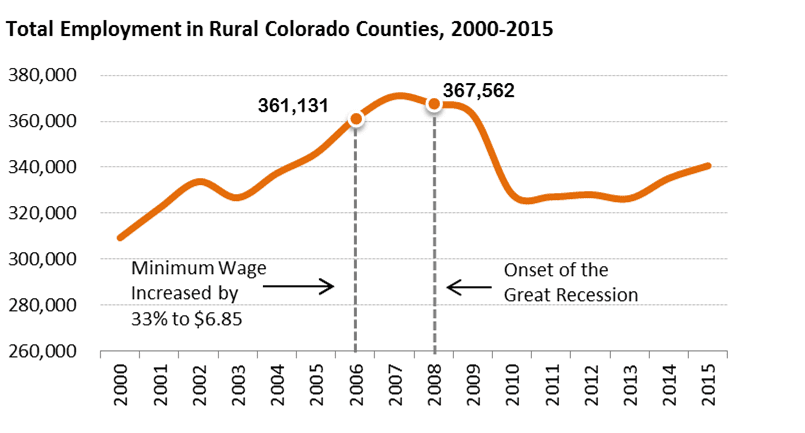Charles Brennan provided testimony in support of House Bill 24-1129, Protections for Delivery Network Company Drivers. CCLP is in support of HB24-1129.
Recent articles
CCLP testifies in support of TANF grant rule change
CCLP's Emeritus Advisor, Chaer Robert, provided written testimony in support of the CDHS rule on the COLA increase for TANF recipients. If the rule is adopted, the cost of living increase would go into effect on July 1, 2024.
CCLP testifies in support of updating protections for mobile home park residents
Charles Brennan provided testimony in support of House Bill 24-1294, Mobile Homes in Mobile Home Parks. CCLP is in support of HB24-1294.
CCLP’s legislative watch for April 5, 2024
For the 2024 legislative session, CCLP is keeping its eye on bills focused on expanding access to justice, removing administrative burden, preserving affordable communities, advocating for progressive tax and wage policies, and reducing health care costs.
Raise the wage for rural Colorado

Statistics show that low-wage workers in rural Colorado need a raise. Underscoring that point is the fact that household income is lower and poverty rates are higher in rural counties of Colorado compared to urban areas. Meanwhile, the economic gap between urban and rural areas of the state continued to widen since the Great Recession and the uneven recovery that followed. Colorado has one of the largest economic gaps between urban and rural areas (along with Virginia, South Carolina and Florida).
This November, Colorado voters will decide whether to give low-wage workers across the state a boost by passing Amendment 70 and increasing the minimum wage from $8.31 to $12 by 2020. As a coalition partner in the Colorado Families for a Fair Wage campaign, the Colorado Center on Law and Policy strongly supports Amendment 70 because it will help more working families in the state become self-sufficient.
While opponents argue that rural Colorado businesses cannot afford raising the minimum wage, recent history suggests that passage of Amendment 70 would be a boon for the state’s economy. For example, more than 6,000 Colorado jobs were created in rural counties after voters decided to increase the minimum wage by 33 percent in 2006. Statewide, employers added over 73,000 jobs between 2006 and 2008.
These real-world numbers are consistent with research on the employment impacts of raising the minimum wage. The most rigorous studies consistently show that raising the minimum wage has little to no negative effect on jobs, even in sectors most likely to hire low wage workers. Local economists agree: 20 leading Colorado economists signed a joint letter of support for raising the minimum wage as a positive move for the state’s economy and low wage workers.
As Colorado’s cost of living has skyrocketed in recent years, the minimum wage in the state has increased only incrementally. Case-in-point: A basic-needs budget for a family of one adult and two children increased by over 50 percent between 2001 and 2015. During the same period of time, median earnings went up a mere 18 percent. Across the state, even as wages stagnated during the Great Recession, the cost of living continued to increase.
The result is that the current minimum wage (equivalent to less than $300 a week for a full-time job) falls far short of self-sufficiency in most counties across the state. Once we factor child care into the equation, a single adult with one child living anywhere in Colorado cannot make ends meet working for the current minimum wage.
Opponents of Amendment 70 maintain that the ballot initiative would hurt the state’s economy. But the evidence shows that when hardworking Coloradans earn more money, they spend it on the local economy and benefit Main Street businesses. In fact, according to a new independent study by the University of Denver, raising the minimum wage to $12 by 2020 will increase Colorado’s Gross Domestic Product by $400 million.
Rural and urban communities alike can afford this modest, phased-in approach to raising earnings for low-wage workers while giving local businesses across the state a boost in consumer spending.
-Michelle Webster





